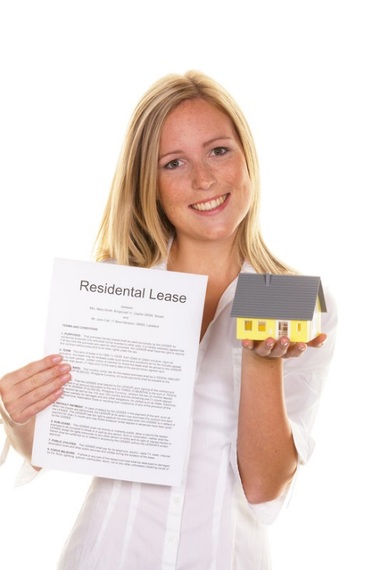
Landlords come from all walks of life, and they can be pros or reluctant landlords who couldn't sell their home. Whether you're considering rental property investment, can't sell and need to rent out your home and move, or you're already a landlord, these five tips can help you sleep at night and keep a smile on your face on your way to the bank.
#1: The Right Rent
Take the time to study your area's market rents and property types. Compare apples to apples, not apartments to single family homes. Call and ask about rents and features. Check the rental ads for promotions like free rent. A lot of this type of marketing may signal high vacancy rates. Be objective about your property's features and location, and set a competitive rent rate. Being just 5% over market rates may still get you a tenant, but if it causes too much turnover you'll lose that and more in lost rent between tenants.
#2: Be Legal
We don't live in a simple world anymore, and landlord-tenant laws can be pretty complicated in many states. Even if you must get some legal advice from a real estate attorney, be sure that you're using legal application and lease forms. They should be legal, but there will be room to draft them to favor your interests and protect your investment.
Misunderstandings cause a great deal of landlord-tenant stress, and using clearly worded and comprehensive leases can go a long way toward eliminating problems. When rent is due, what constitutes poor tenant behavior, and explaining the difference between "wear and tear" and damages are all important for a good relationship. It's every bit as important for you to abide by the rules as it is for the tenant. If you legally must give notice before entry into the unit, do it the right way and with the right timing. When you don't follow the lease, tenants don't feel obligated to do so either.#3: Screen, Screen ... and Interview
Once that lease is signed, if you let the wrong tenant into your property it can be an expensive and painful process to get them out. You want to check their credit history, rental history, job and landlord references, and even do a criminal background check in most cases. Letting a previously convicted drug dealer into your property can create some major problems for you if they lapse into old habits. There are services that pull together these background and reference tasks, and you can find them online with a search, or there may be local companies.
Think back to the previous tip and be legal. Don't ask for information you aren't legally allowed to gather, or don't ask questions that cross the line when it comes to anti-discrimination laws. This is another area where you may want some legal advice and a script for your interviews so you stay on the right side of the law. That said, if your gut is telling you that there's something not quite right about a prospective tenant, especially in the interview, then you should reject them for any legal reason.
#4: Maintain for Comfort and Safety
The best way to avoid late night "no heat" calls is to have regular maintenance performed on heating and cooling systems. Maintain all of the equipment in your rental and you'll have a happier tenant and fewer emergency repair visits. For safety, do regular checks of smoke and carbon monoxide detectors, even changing the batteries at your expense. On a side note, this is a great way to get access every three to four months to inspect for damage or problems when you're doing a courtesy safety battery change.
#5: Make it a Home
Be nice to your tenants. Send them surveys or call them now and then to see if they're happy or experiencing even minor problems. Be proactive and address their concerns. Whenever you can add a feature or amenity at reasonable cost, do that. When the end of their lease rolls around, you have two possible situations:
1.They give notice and move on to another rental, or2.They make a rent concession necessary to keep them, or3.They're happy, and want to stay, even if you must do a minor rent increase.
The first two cost you money in lost rent and possibly rehab between tenants. The last one takes almost none of your time and keeps the cash flowing.
There are a lot of details involved in these five tips, but keeping them top-of-mind in all of your landlord activities will keep you in a better mood and add to your bank balance.
